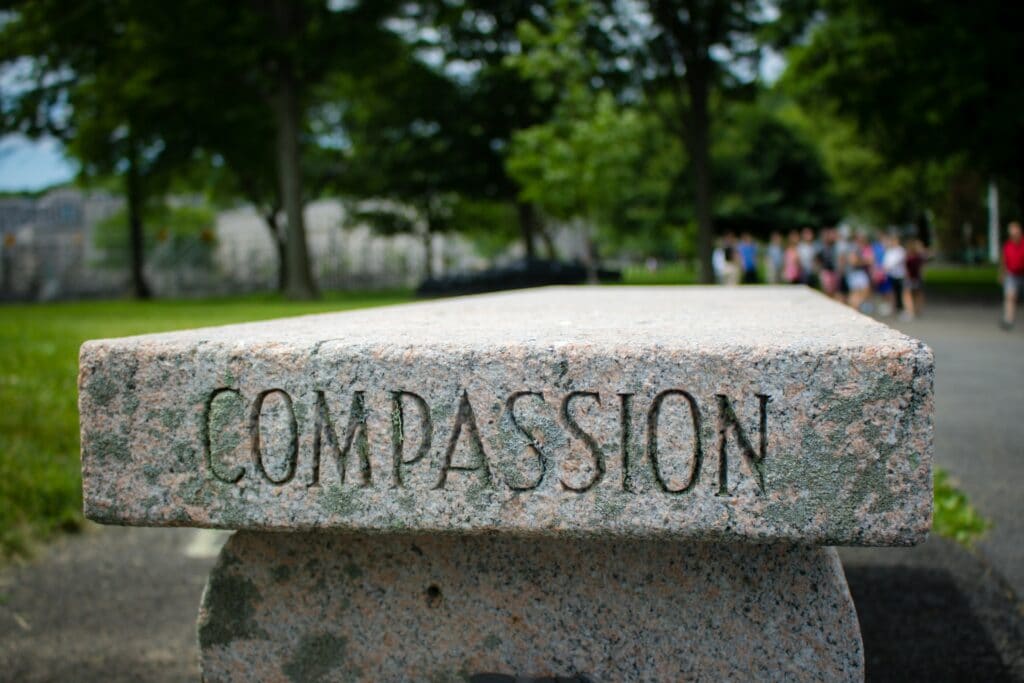Hope 365 Concert feat. TAYA & Hulvey - July 19 @ 7pm
Do We Get to Decide Who is Worthy of Jesus?
March 14, 2022
A few days ago, the Instagram algorithm introduced me to an artist who had just recently showcased a new series of prints that she had created. The images were called “The Foot-Washing Series.” Depicted in those pieces is Jesus kneeling and washing the feet of many icon individuals; protesters from either side, the pope, a nurse after a long agonizing shift, and even Eve. There are many more in her series of art (if you want to see them for yourself, you can search Salt & Gold Collection), but a couple of weeks ago, the artist introduces a few pictures in light of the war in Ukraine. She illustrated a mom holding her child tightly with the Ukraine flag draped over them. But then the following image may have seemed a little more controversial, a heartbroken Jesus washing the feet of a Russian soldier with a possibly more familiar face. Through an extended caption and thought from the artist, the overall question she seems to pose is, “Do we get to decide who is worthy of Jesus?”
This question frequently pops up into many people’s minds when conversations of injustice, pain, and tragedy arise. Looking back at history when thinking about slavery, genocide, or the Holocaust, many cannot fathom thinking God could love “those” people of oppression and downright evil actions. How often have we heard the question, “Why do bad things happen to good people?” And as well intending as this question is, it automatically puts people and their sins within ranks. It’s a normal human response to seeing evil and sin and wanting God’s wrath and justice. But too quickly do we welcome and want God’s deep compassion and forgiveness for our own sins or the people we consider “good” while negating His unconditional love for ALL sinners.

This struggle to understand God’s compassion isn’t a new phenomenon. In the book of Jonah, we can read this same conflict within Jonah’s heart while the text beautifully portrays the compassion of God. Some may know the basics of Jonah’s story since it’s in all the classic Christian children’s books, but the underlying details are vital to God’s story. Jonah didn’t want to obey God when God asked him to go and tell the Ninevites to repent of their sins. Jonah disobeyed, sailed away, and then ended up in the belly of a large fish. Blech! The story ends with Jonah finally obeying, and the people of Nineveh repented of their sin and turned to God! Everyone lived happily ever after, the end.
Well, not exactly. From beginning to end, Jonah’s heart towards God’s compassion for Nineveh never really changed. Yes, he ended up doing as God asked, but even at the end of the book, we see Jonah unable to understand why God would show mercy to “those” people. Quick lesson — Ninevites weren’t just a foreign people who didn’t know God. They were, in fact, a nation of people who prided themselves on how well they tortured and murdered people. History books and artifacts have found countless documentation of the brutality, evil, and disgusting practices they held and enjoyed. They would easily fall into those above categories of “those” people. Jonah didn’t want anything to do with God’s plan to forgive them.
“But to Jonah this seemed very wrong, and he became angry. He prayed to the Lord, “Isn’t this what I said, Lord, when I was still at home? That is what I tried to forestall by fleeing to Tarshish. I knew that you are a gracious and compassionate God, slow to anger and abounding in love, a God who relents from sending calamity. Now, Lord, take away my life, for it is better for me to die than to live.” — Jonah 4:1–3
Jonah’s heart is revealed to us. Is it relatable to you at all? When we see someone get a second chance that we don’t feel is deserved or hear that criminals of unthinkable crimes accept Jesus into their hearts and will be in heaven alongside us one day. How is our attitude? Can we accept the equal compassion that God gives to everyone no matter the sins they’ve committed? Do we sometimes think that maybe God is TOO compassionate?
Romans 6:23 says, “For the wages of sin is death; but the gift of God is eternal life through Jesus Christ our Lord.” All sin deserves death, even sins that might not seem as bad as other sins. So all sinners desperately need the good news of Jesus Christ. God sent His perfect Son, Jesus, to be the ultimate sacrifice for our sins. No one can save themselves from their sins; only Jesus can do that for us. And it is for all of us who repent and seek His mercy and forgiveness.
John the Baptist said in John 1:29, “Behold, the Lamb of God, who takes away the sin of the world!” God’s love, forgiveness, and compassion are available to everyone. That includes the people we would consider unforgivable or unredeemable. That is why it should be the mission of every follower of Christ to share that same compassion with everyone and relentlessly share the Gospel with everyone!
